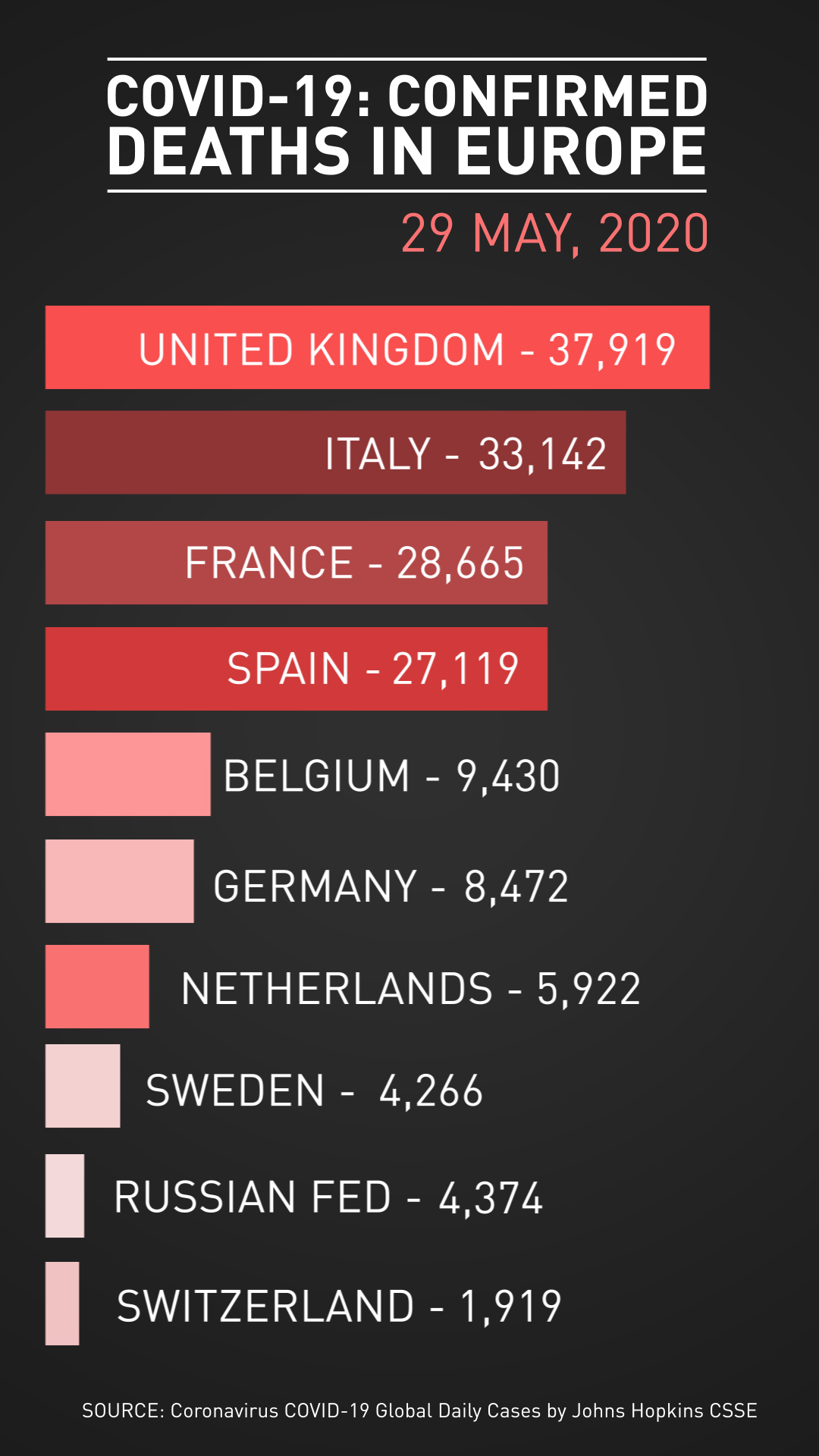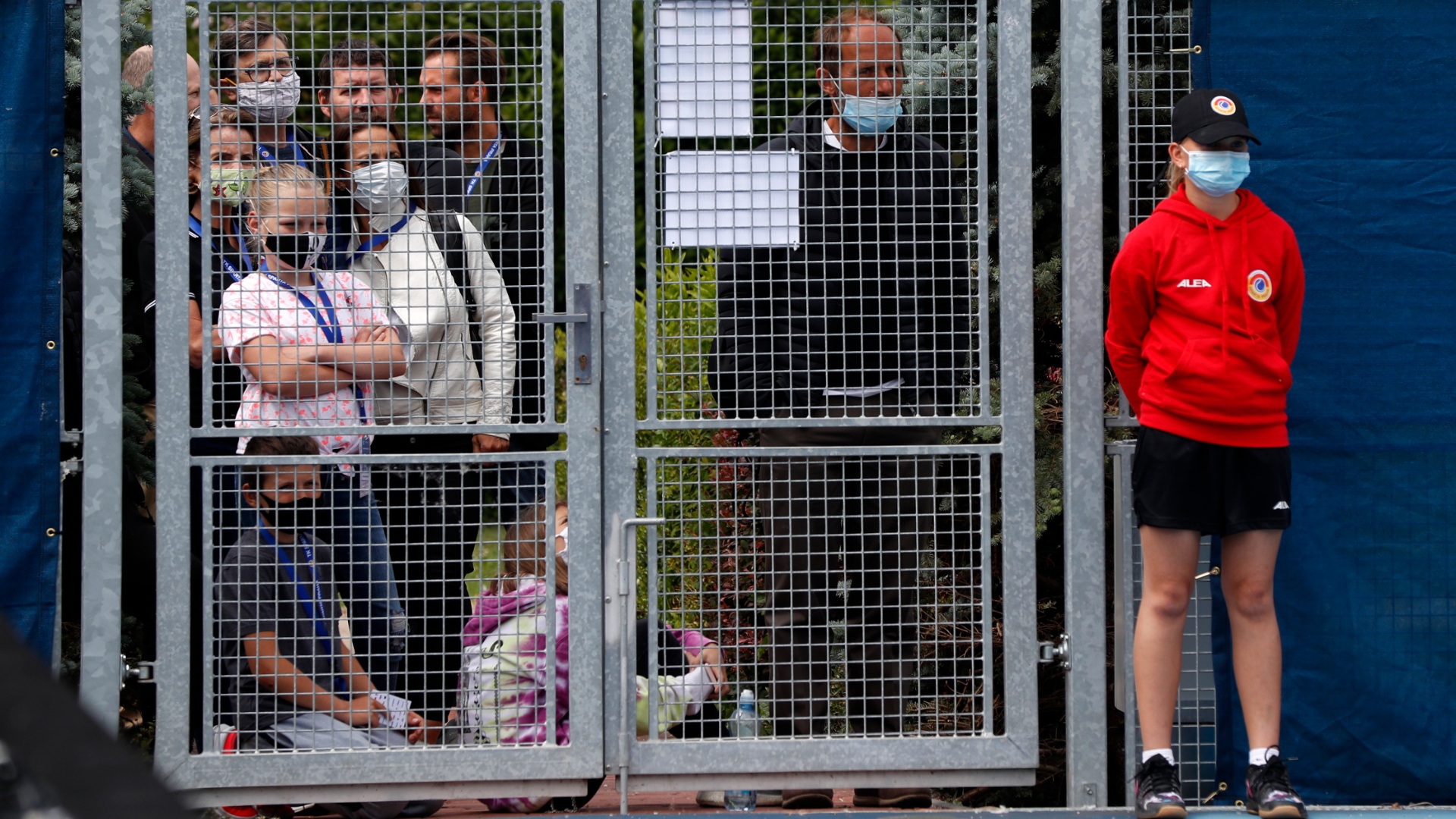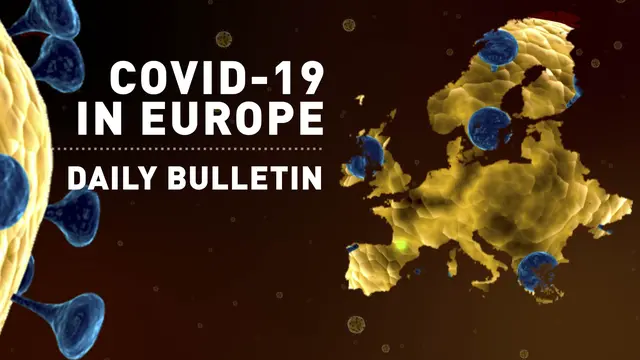TOP HEADLINES
•Russia has reported 232 COVID-19 deaths in the last 24 hours, its highest one-day amount taking the death toll to 4,374. Russia's tally of 387,623 cases is the world's third highest total after the U.S. and Brazil.
•Portugal has reported five successive days of rises in case numbers – centering on the capital Lisbon, where lockdown restrictions are to be eased from Monday. Portugal has now had 31,595 cases and 1,369 deaths.
•Bulgaria is to lift a 14-day quarantine for visitors from most European Union countries – but not travelers from the UK, Sweden, Belgium, Ireland, Portugal, Spain, Italy and Malta. The Balkan country of seven million people has suffered just 136 deaths.
•Romania will reopen its beaches and outdoor restaurants from Monday, with two-meter social distancing. Outdoor events for up to 500 people will be allowed if seated and distanced, president Klaus Iohannis announced.
•Sweden's top football division will start on 14 June. The league, which plays a summer season, had been scheduled to start in April.
•**Irish prime minister Leo Varadkar said there is "a good chance" of halving social distancing **rules from two meters to one if the country's infection rate continues to decline.
•UK finance minister Rishi Sunak will announce on Friday how much employers must contribute to the government's furlough scheme from August . Environment minister George Eustice said the scheme must be "tapered down."
• British business confidence fell in May to its lowest since the 2008 Global Financial Crisis , according to a survey for Lloyds Bank. Other surveys have shown a small improvement since the initial lockdown shock.
• French car maker Renault is set to announce 15,000 layoffs worldwide on Friday , just under 10 percent of its workforce.
•British car production could slump to its lowest annual level in decades. Noting that only 197 cars were made in April, down from 71,000 in April 2019, the Society of Motor Manufacturers and Traders asked for government investment to avoid the worst output since the early 1980s.
00:08

ACROSS EUROPE
By Andrew Wilson in the UK
UK finance minister Rishi Sunak is expected to update the national furlough scheme today. From August, employers will be expected to pay some of the wages they've been spared by a scheme that's likely to cost the Treasury $100 billion.
More than 100 MPs have lobbied Sunak to extend similar measures for the self-employed, which are due to end this weekend. It's being said in Westminster that Sunak's announcement is dependent on the Dominic Cummings issue which still, after a week, dominates some of the newspaper front pages. Cummings, a top adviser to Prime Minister Boris Johnson, has come under fire taking a long car journey at the height of the country's lockdown.
The English Premier League is set to return from 17 June, with four football matches to be broadcast (behind closed doors) by the BBC, with a further 25 games on Sky.
The much-vaunted coronavirus test-and-trace system is said to be struggling at the starting blocks after the government said it plans to roll it out at the beginning of June. There are reports today of data protection and other teething issues.
Dido Harding, who runs the program, has told Downing Street it won't be fully fit for purpose until the end of June.

Spectators behind a fence watch the Czech Tennis President's Cup charity tournament final match in Prague. Czechia is easing its lockdown restrictions. /Petr David Josek/AP Photo
By Ross Cullen in Paris
Renault has announced that 15,000 jobs are being cut worldwide, including 4,600 in France, as it faces a slump in global demand that has been exacerbated by the coronavirus crisis.
The French car maker is looking to make $2.2 billion in savings over the next three years and says six production sites are under review. It is planning to freeze expansion in Morocco and Romania and will aim to change its output to focus more on small vans and electric vehicles, such as the company's Zoe car.
The government says it will not sign off on a planned $5.5 billion loan for Renault until management and unions conclude talks over jobs and factories.
By Toni Waterman in Brussels
Belgium
Belgium's economy minister has dashed any hope that restaurants, cafes and hotels would be allowed to resume operations before 8 June. A decision on the sector's reopening is expected next week, but there had been talk of an early reopening.
Even when they do fling open their doors, a new survey from Ghent University shows it will hardly be a return to normal. Eighty-five percent of restaurant and cafe operators surveyed said they expected customer numbers to be nearly halved. As for the customers, 40 percent said they'd hold off on returning to restaurants out of fear of contamination.
The federal government is likely to approve a VAT cut from 21 percent to 6 percent, excluding alcohol sales, in a bid to stimulate demand.
The European Union
The details of the European Commission's $825 billion coronavirus recovery fund are slowly coming into focus. EU antitrust chief Margrethe Vestager will lay out the details of a new solvency support instrument on Friday, which will help recapitalize otherwise healthy companies put at risk of collapse by the coronavirus pandemic. The Commission says lockdown measures could cost firms more than $1.3 trillion by the end of 2020.
Support from Brussels could help European companies fend off foreign takeovers, while also leveling the playing field across the bloc. There are concerns that the single market could be distorted as wealthier countries have more firepower to support their citizens and firms than poorer countries.
FROM OUR GLOBAL COLLEAGUES
**CGTN China: **
Wuhan Institute of Virology director says 'let science speak'
**CGTN America: **
Could politics and sports reignite the U.S. pandemic?
**CGTN Africa: **
Namibia, with no COVID-19 deaths, further eases lockdown
**Check out **
The Pandemic Playbook
, CGTN Europe's major investigation into the lessons learned from COVID-19
Source(s): Reuters
 简体中文
简体中文



